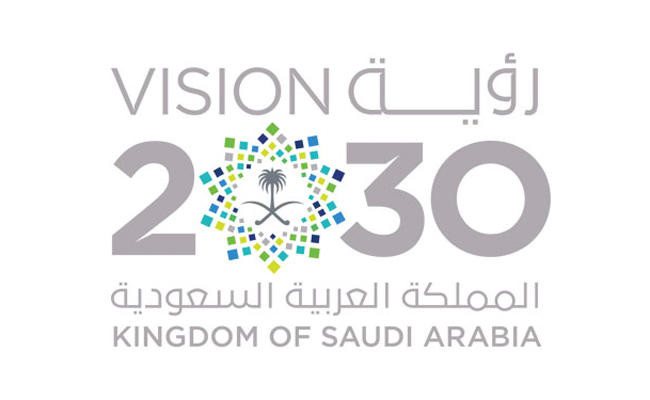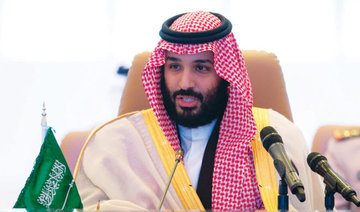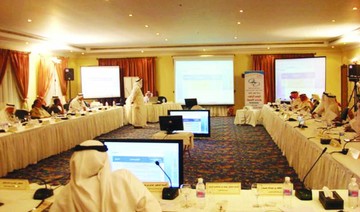JEDDAH: An increasing number of professionals in Saudi Arabia are taking up roles in the government, education and non-profit sectors, moving away from the traditional oil and gas roles, according to a LinkedIn report.
The employment-oriented social networking service, in its latest talent migration report for the Saudi market, said the number of professionals working in the government, education and non-profit sectors increased by 3.5 percent between October 2016 and October 2017. This was followed by the oil and energy sector, which saw a rise of 0.7 percent of professionals, along with architecture and engineering, also at 0.7 percent.
This reflects a commitment to stay true to the Saudi Vision 2030, which aims to diversify the Kingdom’s economy and reduce dependency on oil and gas.
The report looks at workforce and migration changes across different LinkedIn markets in the past year.
According to the report, most professionals in government, education and non-profits are opting for roles pertaining to marketing and business development. “Our results indicate that the market understands the steps that need to be taken for a balanced and diversified economy,” said Rabih Haidar, head of Saudi Arabia Territory, LinkedIn Talent Solutions.
“With our report, we endeavor to provide unique labor market insights to the policymakers, enabling them to make better-informed decisions,” she added.
The report also sheds light on the migration trends in the Kingdom — the biggest net migration to Saudi Arabia is from India (33.84 percent), the US (31.18 percent) and the Philippines (5.20 percent).
India (19.50 percent), the US (14.54 percent) and Egypt (10.49 percent) are top sources of talent to Saudi Arabia. The top functions benefiting from an inflow of talent are engineering, operations and information technology.
Professionals in KSA broaden career horizons in line with Vision 2030: Report
Professionals in KSA broaden career horizons in line with Vision 2030: Report

Where We Are Going Today: Iris Cafe
Iris Cafe is an elegant dining destination nestled within the new Ramla Terraza complex, offering a delightful blend of food and ambiance. Located on King Fahd Road in the Sahafah district of Riyadh, this cafe and restaurant boasts a beautiful interior, complemented by both indoor and outdoor seating options. The upper floor features a stunning garden with an open seating area and a mocktail bar, perfect for enjoying a refreshing drink in a serene environment.
The menu at Iris Cafe is a culinary journey, showcasing gourmet dishes inspired by international cuisines, including Mediterranean, Japanese, and Latin American flavors. Guests can indulge in a variety of offerings, from sandwiches and pasta to vibrant salads. The drink selection is equally impressive, featuring specialty coffees and a creative array of mocktails alongside delicious desserts.

Visitors may begin with the Iris Oriental Dips, which include creamy black hummus, spicy roasted chickpeas, and special muhammara seasoned with parmesan cheese and fresh basil, all served with homemade crackers. This appetizer sets a high standard for the meal to follow and does not disappoint.
However, the chicken tacos, featuring buttermilk-fried chicken topped with Asian slaw in a soft tortilla, are less memorable. On the other hand, the crispy chicken and shrimp wontons served with sweet chili and lime sauce are a highlight and a must-try.

For the main course, you may try the glazed chicken, marinated and grilled with pomegranate sauce. The beef cheek, slow-cooked for 12 hours and served with caramelized onion cream, is absolutely delicious. This dish is a standout and sure to impress anyone looking for tender, flavorful meat.

The San Sebastian cheesecake is rich and incredibly satisfying. Overall, Iris Cafe offers a wonderful dining experience with its diverse menu and inviting atmosphere, making it a must-visit spot in Riyadh.
Saudi National Defense University holds graduation ceremony

RIYADH: A graduation ceremony for the graduates of the defense ministry’s National Defense University was held in Riyadh under the patronage of Saudi Minister of Defense Prince Khalid bin Salman.
Upon his arrival, the Saudi Press Agency reported, the defense minister was received by Vice Minister of Defense Prince Abdulrahman bin Mohammed bin Ayyaf; Chief of General Staff Lt. Gen. Fayyad bin Hamed Al-Ruwaili; adviser to the minister of defense for intelligence affairs Hisham bin Abdulaziz bin Seif; and director of the National Defense University, Maj. Gen. Mohammed Al-Ruwaili.
Prince Khalid watched a visual presentation about the university’s programs to train and qualify military and civilian leaders studying at the university. He also reviewed developmental activities and events reflecting the university’s institutional development plans.
King Abdulaziz University highlights academic programs, global partnerships at NAFSA 2025

- San Diego event gathers more than 8,000 education professionals from over 100 countries
RIYADH: King Abdulaziz University is taking part in NAFSA 2025 in San Diego: The Association of International Educators’ Annual Conference and Expo.
It forms part of a Saudi Ministry of Education delegation featuring 12 universities.
Running until Friday, the event has gathered more than 8,000 education professionals from over 100 countries.
KAU is showcasing its academic programs, research achievements, and global collaboration initiatives, with a focus on innovation, talent attraction, and joint academic ventures.
The university is also promoting the Study in Saudi Arabia platform, which aims to establish the Kingdom as a top destination for international students.
Tareef Al-Aama, the president of KAU, said the Kingdom’s higher education sector was undergoing a transformative phase under Vision 2030, supported by strong leadership and strategic planning.
He also emphasized KAU’s commitment to global engagement, academic excellence, and expanding international partnerships.
How Saudi Arabia is leveraging AI to strengthen cybersecurity and combat cybercriminals

- Generative AI enables hyper-realistic phishing, voice cloning, and deepfakes, making scams harder to detect
- Saudi Arabia’s National Cybersecurity Authority offers a toolkit to help bolster digital protection across sectors
RIYADH: As generative artificial intelligence reshapes industries and transforms daily life, it is also fueling a new generation of cybercrime — smarter, faster, and harder to detect. Across the Gulf region, governments and tech leaders are working hard to stay one step ahead.
At the heart of this regional defense is Saudi Arabia’s National Cybersecurity Authority and its Cybersecurity Toolkit, which offers a template to shield critical infrastructure and public services from digital threats.
“The Cybersecurity Toolkit offers public and private sector organizations a comprehensive suite of tools to enhance cyber readiness and reduce cyber risks,” Zainab Alamin, vice president of national digital transformation at Microsoft Arabia, told Arab News.
Available in Arabic and English, the toolkit is part of the NCA’s mission to embed cyber resilience across the Kingdom.
But the NCA’s efforts go beyond templates. Its national cybersecurity portal, HASEEN, helps manage and develop cyber services, while the CyberIC Program cultivates homegrown expertise to defend Saudi systems from evolving threats.

“Recognizing the importance of public awareness, the authority also launched the National Cybersecurity Awareness Campaign, which aims to raise cybersecurity awareness among all segments of society,” said Alamin.
And the investment is substantial. “Saudi Arabia has significantly increased its investment in cybersecurity, with spending reaching SR13.3 billion ($3.5 billion) in 2023, underscoring the Kingdom’s commitment to safeguarding its digital infrastructure,” she added.
But while Saudi Arabia is stepping up, so are cybercriminals. Generative AI has made it drastically easier to forge realistic emails, clone voices, and generate deepfake videos, giving fraudsters a dangerous new edge.
“As AI models improve, the output becomes more authentic, contextually accurate, and emotionally manipulative — making it increasingly difficult for traditional detection systems and even well-informed users to distinguish real from fake,” said Alamin.
Gone are the clumsy phishing emails littered with typos. Today’s scams are polished and personalized. “AI is transforming impersonation scams by making them more convincing, more scalable, and harder to detect,” said Alamin.
Microsoft Arabia’s latest Cyber Signals report revealed the extent to which criminals are exploiting generative AI.
“In this new wave of fraud, AI is being used to produce everything from hyper-realistic images and fake videos to cloned voices, personalized phishing messages, and even entire fraudulent websites,” said Alamin.
The threat is not theoretical. “Imagine receiving a voicemail that sounds exactly like your manager asking you to urgently transfer funds, or an email that looks and reads just like one from your bank, complete with branding and a personalized message,” said Alamin.
“These are no longer far-fetched scenarios; they are happening right now.”

Deepfakes can hijack video calls. Voice clones mimic family members or executives. Even phishing links now use language models to tailor tone and content.
“Thousands of phishing emails can now be tailored with just a few prompts, mimicking tone, language, and even regional nuances,” said Alamin.
In response, Microsoft is deploying its own AI-powered defenses. From April 2024 to April 2025, its systems blocked $4 billion in fraud attempts and prevented over 49,000 fraudulent partnership enrolments.
“We also work closely with law enforcement and industry partners to share threat intelligence and combat criminal misuse of AI,” said Alamin. “Scammers are evolving fast, but so are we.”
Microsoft’s platforms, such as Defender for Cloud and Entra, use AI to detect and neutralize cyber threats across email, chat, and cloud infrastructure.
DID YOU KNOW?
• Generative AI enables hyper-realistic phishing, voice cloning, and deepfakes, making scams harder to detect.
• Gulf nations are aligning cybersecurity strategies with global standards amid rising risks and shared digital ambitions.
• Saudi Arabia’s National Cybersecurity Authority offers a toolkit to help bolster digital protection across sectors.
Edge, the company’s browser, now offers typo and domain impersonation protection, as well as a “Scareware Blocker” to shut down alarming pop-up scams.
“In addition, our identity and access management tools, like Microsoft Entra, help organizations enforce Zero Trust principles, ensuring that no one is trusted by default, whether human or AI-generated,” said Alamin.
Yet the battle is not just technical — it’s also behavioral. “In the age of AI-assisted scams, both individuals and organizations need to adopt a more proactive, layered approach to cybersecurity. This means combining technology, awareness, and policy to build digital resilience.”

Education remains key. “Scammers often try to short-circuit your judgment with fear or pressure. A perfect example of this is ‘limited-time’ deals and countdown timers when online shopping,” said Alamin.
Other signs of AI-generated deception include overly formal language, generic greetings, or unusual phrasing. “If something ‘feels’ off, trust your instincts and immediately stop engaging,” she added.
For deepfakes and voice clones, look for unnatural lip-sync, poor lighting, or glitchy visuals. Subtle typos in domain names or email addresses can also be giveaways. And always verify communications that involve sensitive information — especially money.
“If you receive a call, video, or email that seems unusual — even from someone you know — double-check it via another trusted channel,” said Alamin. “Also, avoid direct bank transfers or cryptocurrency payments, which lack fraud protections.”
Saudi Arabia is not alone in its response. Gulf nations, from the UAE to Oman, are advancing cybersecurity frameworks aligned with global standards. The UAE recently launched its Green Bond and Sukuk Framework, with cybersecurity embedded in its digital finance architecture.
Microsoft’s regional partnerships reflect this shared urgency to modernize defenses without stifling innovation.
“Tools that generate text, synthesize voice, or create hyper-realistic imagery can empower innovation in education, accessibility, and customer service,” said Alamin. “However, in the wrong hands, they can be weaponized for scams, misinformation, and manipulation.”
That dual-use challenge is at the heart of the cybersecurity conundrum. “A key challenge is intent. AI doesn’t have ethics, but its users do.”

Saudi Arabia unveils robotic surgery and PET-CT scanner to boost Hajj healthcare services

- Developments are in line with the Kingdom’s Vision 2030, which emphasizes innovation and excellence in healthcare, ministry said
RIYADH: Saudi Arabia has introduced robotic surgery at King Abdullah Medical City in Makkah, the Kingdom’s Ministry of Health said on Thursday.
The new robotic system marks a major advancement in healthcare services provided to Hajj pilgrims and will support procedures in thoracic surgery, urology, and oncology, enabling greater surgical precision and faster recovery for patients.
The initiative is part of the Ministry of Health’s efforts to leverage technology to improve the quality and efficiency of care delivered during the annual pilgrimage.
The hospital has also launched the first-ever PET-CT scanner within the ministry’s hospitals in the western region.
The diagnostic tool allows for early detection of cancers, cardiovascular diseases, and neurological disorders, significantly enhancing diagnostic capabilities.
These developments are in line with the Kingdom’s Vision 2030, which emphasizes innovation and excellence in healthcare, the ministry said.
The expansion of high-tech medical services during Hajj reflects Saudi Arabia’s continued commitment to ensuring the health and safety of pilgrims from around the world.



















